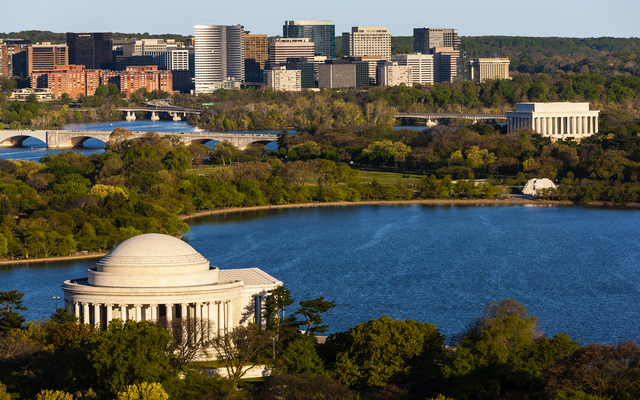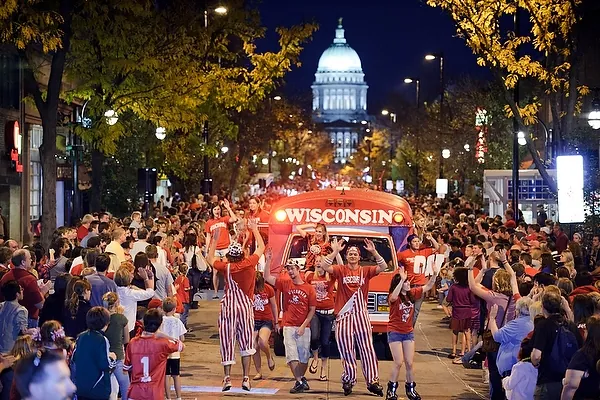The clock is ticking. It’s just a month away. Come May, you’ll be donning your cap and gown and humming “Pomp and Circumstance” alongside your classmates. This is your moment. Brimming with ideas, energy, and confidence, you’re ready to embrace the opportunities ahead.
And the outlook is pretty positive for the Class of 2016. According to a new April study from the National Association of Colleges and Employers (NACE), new graduate hiring is projected to pick up by 5.2% over 2015. Of course, that comes with a caveat. Not every industry or region hires evenly. If you’re looking to start fast and make an impact, where you work will be almost as important as what you do.
METHODOLOGY REWARDS HIGH INCOMES AND EDUCATION – AND LOW COSTS
Recently, NerdWallet, a financial education website, devised a formula for identifying the best areas for starting a career. Using data from the 2014 U.S. census (along with 2015 unemployment figures from the Bureau of Labor Statistics), the formula is based on six data points:
- Unemployment Rate: 20%
- Percentage of residents who hold a bachelor’s degree (or higher): 15%
- Percentage of residents who are 20-29 years old: 30%
- Median earnings of residents who hold a bachelor’s degree (or higher): 10%
- Percentage of jobs in management, business, science or the arts: 10%
- Rent as percentage of income: 15%
In other words, NerdWallet rewards cities for low unemployment and rents and high education levels, earnings, professional jobs, and concentrations of twenty-somethings.
WASHINGTON, DC IS THE PLACE TO BE
Based on NerdWallet’s calculations covering the 100 largest cities, the best place for ambitious (and thrifty) grads to work is Arlington, Virginia. Adjacent to Washington, D.C., the city has evolved into an extension of the Federal government, home to the Pentagon and the Drug Enforcement Agency (along with Reagan National Airport). Culturally, you’ll find several landmarks in Arlington, including the National Cemetery and the U.S. Marine Corps War Memorial. While the public sector dominates the local economy, there is a heavy concentration of consulting firms in the area, headed by Accenture and Deloitte. Thanks to nearby public economic development engines, Arlington has emerged as a startup hub, boasting fast-growing firms like the Excel Group and Opower.
Statistically, Arlington boasts benefits certain to warm the Millennial heart. For one, 67.1% of its workforce holds jobs in coveted areas like business, science or art – the highest total of any city. In other words, even liberal arts majors could find work there. It also ranks as the most educated city, with 71.5% of residents earning a bachelor’s degree or higher. At the same time, Arlington tops all comers in terms of median earnings at $72,406 – nearly a $7,500 increase in the past year alone! The downside of Arlington, of course, is housing, with 31.4% of pay earmarked for rent – one of the highest in the nation (and even 3.5% higher than New York City).
Madison, Wisconsin is popularly described as ’77 square miles of fantasy surrounded by reality.’ While the remark is directed towards the city’s progressive values, it could equally refer to its quality of living. The home of the University of Wisconsin and the state capitol, Madison ranks second in NerdWallet’s matrix. Squeezed between two lakes, Mad City is renowned for its crazy nightlife on State Street and far-reaching system of biking and hiking trails. You’ll also find a vibrant cultural scene, replete with music festivals, art museums, and professional orchestra, ballet, and theater companies.
Demographically, nearly a quarter of the population is 20-29, courtesy of the university. Residents also enjoy a slim 3.1% unemployment rate, though the city’s tepid $45,176 median earnings are a downside (despite less than 25% of that going to rent). The city also features a healthy mix of employment options, including a surging entrepreneurial scene, stable public sector work, and established corporate operations like Epic Systems and Kraft Foods (along with several sizable health insurance companies). Like many diversified college towns, the university acts as a source of both young talent and a resource to provide continued professional training.
MINNEAPOLIS REMAINS STRONG THANKS TO DEEP CORPORATE FOOTPRINT
Alas, NerdWallet’s focus on cities over metro enables some regions to double-dip. Washington, D.C. is a case in point, ranking third despite only being separated from Arlington, Virginia by the Potomac River. Like Arlington, D.C.’s strengths are high pay ($62,745) and work in attractive sectors (i.e. business, science, and arts). Boston ranks fourth, based on its enviable educational resources (Harvard, MIT, Boston University, Northeastern, and Tufts, among others) and a bubbling tech and startup scene to supplement its traditional strengths in banking. Rounding out the top five is Minneapolis. Considered the “It” city back in the 1980s, Minneapolis continues to thrive thanks to the area’s strong corporate backbone that includes Fortune 500 stalwarts like Target, United HealthGroup, 3M, Best Buy, U.S. Bancorp, and General Mills. Minneapolis’ low cost of living is another boon, with residents paying just 22.4% of their income to housing – one of the least costly options among major cities.
(To see the 25 best cities for recent grads, go to the next page)














Questions about this article? Email us or leave a comment below.